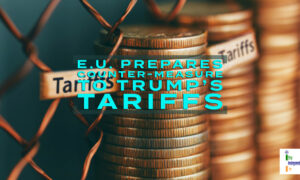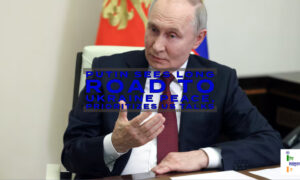
EU and Colombia open a new chapter to strengthen bilateral relations
The European Union (E.U.) and Colombia have signed a Memorandum of Understanding (MoU) for enhancing the political and sectoral dialogue and cooperation for the next decade.
The MoU was signed in New York in presence of President of European Commission – Ursula von der Leyen and President of the Republic of Colombia – Iván Duque Márquez. It was signed by the High Representative of the E.U. for Foreign Affairs and Security Policy – Josep Borrell and the Vice President and Foreign Minister of Columbia – Marta Lucía Ramírez.
Speaking on the occasion, Ursula said, “Colombia is a key ally of the European Union and a like-minded partner at bilateral, regional and multilateral levels. Today, we committed to taking our relationship further: working jointly to address global challenges such as the COVID-19 pandemic. Closer engagement is also crucial on climate change and on the environment, and we agreed on an ambitious environmental agenda, as enshrined in the Green Deal and in Colombia’s own policies.”
Taking it to twitter, the European Commission tweeted,
EU and Colombia open a new chapter to strengthen bilateral relations signing a “Memorandum of Understanding".
— European Commission
Colombia is a key ally and we are committed to taking our relationship further to address global challenges like the COVID-19 pandemic or climate change.(@EU_Commission) September 22, 2021
Ivan Duque tweeted (translated from Spanish), “We highlight the scope of the Memorandum of Understanding to strengthen integration and cooperation between Colombia and the EU, signed during our meeting with @vonderleyen of the @EU_Commission, to continue defending the benefits of multilateralism. #UNGA.” Original tweet in Spanish:
Destacamos el alcance del Memorando de Entendimiento para fortalecer integración y cooperación entre Colombia y la UE, firmado durante nuestro encuentro con @vonderleyen de la @EU_Commission, para seguir defendiendo los beneficios del multilateralismo. #UNGA pic.twitter.com/2ipvPPIyti
— Iván Duque(@IvanDuque) September 21, 2021
Talking about the MoU, Josep Borrell tweeted (translated from Spanish), “Today we have taken bilateral relations between the EU and Colombia one step further. The memorandum of understanding that we have signed with @mluciaramirez in the presence of @vonderleyen and @IvanDuque strengthens our alliance in the face of global challenges.” Original tweet in Spanish:
Hoy hemos llevado las relaciones bilaterales entre la UE y Colombia un paso más allá.
— Josep Borrell Fontelles (@JosepBorrellF) September 21, 2021
El memorando de entendimiento que hemos firmado con @mluciaramirez en presencia de @vonderleyen y @IvanDuque fortalece nuestra alianza frente a los desafíos globales. https://t.co/BKaGYCuUNL pic.twitter.com/RRvSSAMtK7
The MoU has 5 key priorities to guide the development of EU-Colombia relations. This includes the successful implementation of the 2016 peace agreement between the Government of Colombia and the FARC as a contribution to global peace and stability, focus on environment, climate change, resilience and biodiversity, the economic and social agenda including the digital agenda that promotes sustainable and inclusive growth and economic, social and territorial cohesion.
It also includes the agenda of solidarity, around the Venezuelan refugee and migratory crisis and its impact on Colombia and the region as well as all facets of migration. Lastly, the two will pursue the multilateral agenda and cooperation on global and regional foreign policy issues to strengthen multilateralism and a rules based global order.
Colombia is an important partner of E.U. in multilateralism, climate change and other key priorities such as peace and stability. The EU is Colombia’s third trade partner after the U.S. and China, the largest source of FDI and an important development partner. Milestones of the relationship include the 2013 Trade Agreement; a short-term visa waiver agreement (2015) and a Framework Participation Agreement to participate in E.U.-led CSDP missions (entry into force in 2020).







